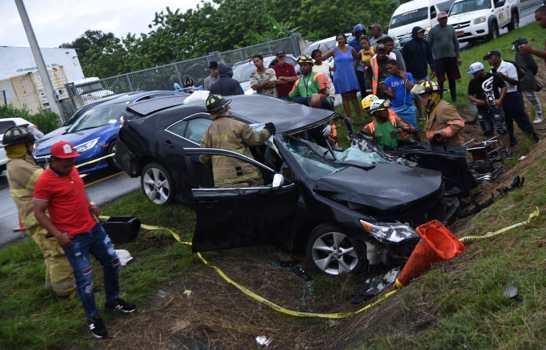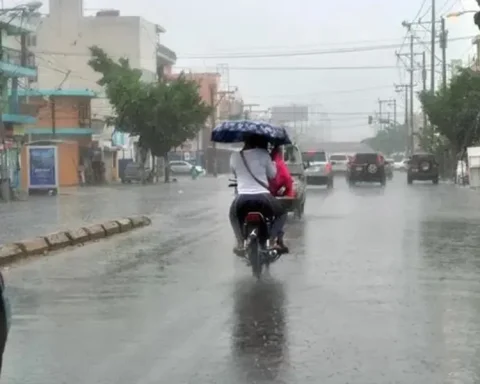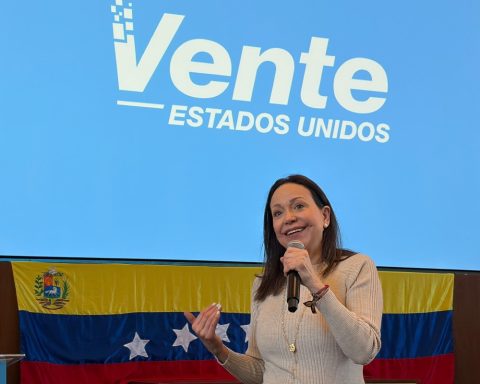The electric mobility It is gaining ground globally, and Peru is no exception. According to International Energy Agency (IEA), it is expected that by 2030 there will be 125 million electric models circulating in the global vehicle fleet. According to the Automotive Association of Peru (AAP)currently there are more than 3 thousand vehicles electrified, between hybrid and electric, that circulate in the national territory.
For the multinational ABB, which leads the production and marketing of charging infrastructure for electric vehicles in the world, Peru is a market that should promote the massification of electric cars, through the incorporation of chargers in real estate projects.
“Many construction companies are understanding that this future is here to stay. Today, companies in Peru are incorporating, from the design of the plans, the infrastructure for electric chargers for home and commercial use. This integration is taking place mainly in projects such as: housing, construction, offices, apartments, shopping centers and industry”, said Jhonny Guerrero, electric mobility specialist at ABB in Peru.
This demand for infrastructure arose as a result of the growth of new constructions at the national level, during 2021 and so far in 2022, the post-pandemic period, which warns of a significant growth in electric mobility for private vehicles in the country in the following decades.
This growing demand from the electric vehicle market will require infrastructure that, according to Guerrero, the Swiss multinational ABB has the capacity to meet with solutions such as chargers designed to charge in four to five hours, two hours or 10 minutes, respectively.
The first of these three technologies is applied in a residential environment, offices, public parking, while the last two technologies aim to serve shopping centers and charging stations such as taps.
As a sign of this progress, this year the technology company is implementing five charging infrastructure integration projects, between offices and residential. In the same way, Guerrero pointed out, the contributions with real estate projects, construction companies and industry, are increasing, passing the million dollars in only charging infrastructure for electric vehicles.
Regarding the economic benefits of these solutions, he indicated that, although the initial cost for the acquisition of an electric vehicle is high, the saving in fuel, as well as in maintenance costs, is important.
Today it is possible to achieve savings of between 5 and 10 times what a conventional vehicle with gasoline consumes, while the operating cost could be reduced by up to 40%, since maintenance is for cleaning and not for changing. in consumables or spare parts.
:quality(75)/cloudfront-us-east-1.images.arcpublishing.com/elcomercio/QLQEGF7435DKVJWQ7XOWYZ66GI.jpg)
Infrastructure for fleets
Guerrero assured that the implementation of electric mobility in taxi and bus fleets would represent a potential to boost this market sector and sustain the commitments towards electric mobility and the energy transition, such as the Paris Agreement that seeks to reduce greenhouse gas emissions. greenhouse effect (GHG).
He pointed out that it is important to propose deadlines so that the measures or regulations can guarantee the massification and entry of electric buses into the public transport system, such as those that have been proposed in countries such as Chile.
The infrastructure for this type of passenger vehicle would be aimed at ultra-fast chargers that can charge a bus in less than an hour in a specific establishment or, failing that, increase the charging infrastructure within the city.
:quality(75)/cloudfront-us-east-1.images.arcpublishing.com/elcomercio/GIFGTIWWGFB7BFCQO2VV3AR7UI.jpg)
Challenges of electric mobility
Although the country is committed to promoting electric mobility, there are still no significant advances regarding the regulations to implement the charging infrastructure on the national highway. Thus, the specialist pointed out, the participation of the Government is key because a regulatory framework is needed for its management and the implementation of incentives, such as those that have been implemented in countries of the region such as Colombia and Chile, for its purchase and use.
“Replicating incentives such as the scrap bonus or lowering the VAT for a period of 2 or 3 years for the acquisition of electric vehicles and charging infrastructure would be key, as well as integrating the actions of the different ministries, so that, from their different competencies promote this transition that brings health, economic and environmental benefits”ended.
RECOMMENDED VIDEO
:quality(75)/cdn.jwplayer.com/v2/media/BQsJLhqP/poster.jpg)


















